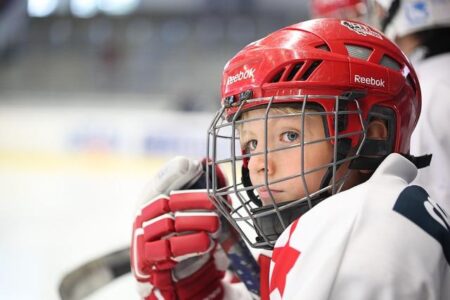Recent social media posts have alleged that a high school in Round Rock is preventing the establishment of a Turning Point USA (TPUSA) club on campus. However, officials from the Round Rock Independent School District have firmly denied these claims, stating that no such blockage has occurred. This article examines the controversy surrounding the allegations, presents responses from the district, and explores the context behind the dispute.
Posts Allege Round Rock High School Blocks Formation of Turning Point USA Club
Several social media posts have recently suggested that Round Rock High School is obstructing efforts to establish a Turning Point USA (TPUSA) club on campus. These allegations quickly sparked debate among students, parents, and community members, with many voicing concerns about potential censorship and the suppression of free speech. However, school district officials have stepped forward to clarify the situation, firmly denying any deliberate effort to block the formation of the conservative student organization.
Representatives from the Round Rock Independent School District emphasized their commitment to supporting all student clubs that meet district guidelines and safety standards. The district shared that the application submitted for the TPUSA club is currently under review, consistent with standard procedures applied to all new student organizations. According to the district:
- All club proposals undergo a thorough review process.
- Student clubs must align with school policies and values.
- Decisions are based on administrative criteria, not political viewpoints.
| Club Status | Review Timeline | District Stance |
|---|---|---|
| Turning Point USA | Under Review (Typical 2-4 weeks) | Neutral; Open to all compliant clubs |
| Existing Clubs | Approved | Supported and encouraged |
School District Responds to Allegations Denying Club Suppression
Round Rock Independent School District (RRISD) has officially addressed recent social media claims suggesting that a local high school is actively suppressing the formation of a Turning Point USA club. District officials categorically denied these allegations, emphasizing their commitment to supporting a wide spectrum of student organizations and viewpoints. A spokesperson confirmed that all clubs, including those with political perspectives, undergo a standard approval process designed to ensure compliance with district policies rather than exclusion based on ideology.
To clarify the situation, the district provided the following key points regarding club approvals and policies:
- All clubs must submit a constitution and secure a faculty sponsor.
- Approval is contingent on adherence to district guidelines, including non-disruption of the school environment.
- Decisions are made transparently and involve the school administration and district officials.
| Club Process Step | Description |
|---|---|
| Application Submission | Proposal with objectives and leadership details |
| Faculty Sponsor Assignment | Faculty member agrees to oversee club activities |
| Policy Review | Ensuring alignment with school rules and values |
| Final Approval | Official authorization by administration |
Analyzing the Impact of Political Clubs in Public Schools
Political clubs in public schools often spark vivid debates, reflecting broader societal dynamics within educational settings. Recent claims regarding a Turning Point USA club allegedly being blocked in a Round Rock high school highlight tensions many districts face when balancing student expression with administrative policies. District representatives insist the club has not been prohibited, emphasizing a commitment to fostering diverse viewpoints while ensuring that clubs adhere to established guidelines.
Analyzing these scenarios reveals both challenges and opportunities presented by politically oriented student organizations. While such clubs can encourage civic engagement and dialogue among youth, schools must navigate concerns including neutrality, inclusivity, and potential disruptions. Below is a summary of typical factors influencing the operation of political clubs in public schools:
- Administrative approval: Clubs must meet school criteria and administrative review processes.
- Student interest: Sustained participation is essential for club viability.
- Community response: Varied opinions impact club support and perception.
- Content neutrality: Schools strive to prevent political bias affecting curriculum or activities.
| Aspect | Potential Impact |
|---|---|
| Student Engagement | Increases political awareness and active citizenship |
| School Climate | May foster inclusive debate or, conversely, generate conflict |
| Policy Enforcement | Ensures equitable treatment of all clubs |
| Community Relations | Reflects and influences local political dynamics |
Recommendations for Ensuring Transparent School Club Policies
Clear Guidelines and Eligibility Criteria: To avoid misunderstandings and ensure fairness, school districts should publish detailed guidelines outlining how clubs are approved, what requirements must be met, and the rights of student organizations regardless of political or ideological stance. These guidelines must be easily accessible on school websites and include transparent timelines for application reviews and decisions. Open communication channels between school administrators and students can help clarify any doubts early in the process, preventing misinformation and fostering trust.
Consistent Enforcement and Oversight: Establishing a standardized policy enforcement framework is crucial. This includes creating an oversight committee that regularly reviews club approval processes to ensure compliance with district policy and constitutional protections. The committee should consist of representatives from the school administration, faculty, students, and community members. Accountability measures, such as public reports or an appeals process, can further cement transparency and protect student rights.
| Policy Element | Recommended Action |
|---|---|
| Application Process | Publish clear forms and approval timelines |
| Communication | Regular updates to students and parents |
| Oversight | Create diverse review committees |
| Appeals Process | Establish clear steps for club challenges |
Key Takeaways
As the debate continues, Round Rock Independent School District maintains that no formal request to establish a Turning Point USA club has been denied, emphasizing its commitment to upholding student organization policies fairly. The situation highlights ongoing tensions surrounding political clubs in schools and the challenges districts face balancing student expression with established guidelines. KVUE will keep monitoring developments and provide updates as more information becomes available.




